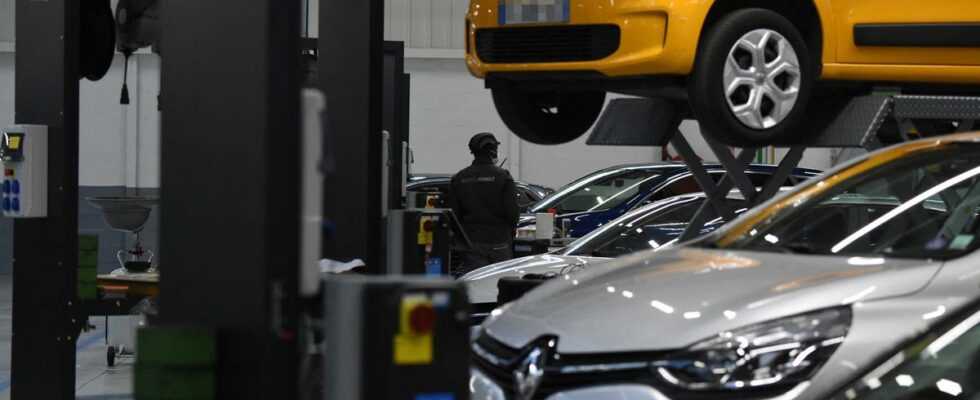The sales volume for a month of March is the lowest since the start of the statistical series in 1990, apart from the exceptional case of 2020.
Difficult to produce, new cars saw their sales plunge in the European Union in March, victims of shortages of semiconductors and the war in Ukraine, the European Manufacturers Association (ACEA) said on Wednesday.
Read alsoWhy car prices are soaring
In total, 844,187 vehicles were sold in March 2022, a decrease of 20.5% compared to March 2021, and almost a third less than in 2019. This is the lowest volume of sales for a month of March since the start of the statistical series in 1990, excluding the exceptional case of 2020, which had paralyzed the economy at the start of the Covid-19 pandemic. The shutdown of Ukrainian factories has added to electronic component shortages and delivery issues that have plagued the auto industry since the spring of 2021. Ukraine is notably the main European supplier of wiring harnesses, parts described as the “the nervous system” cars.
Double-digit declines for the main markets
Due to a lack of parts, several factories have been put on hold across Europe. Volkswagen had to temporarily halt production at several German sites, including part of its historic plant in Wolfsburg, and Zwickau, its electric car production center. The Renault factory in Douai, which produces the electric Mégane, is shut down for 11 days. “Logistical problems, heightened by Russia’s invasion of Ukraine, adversely affected automobile productioncommented ACEA. The main markets experienced double-digit declines, such as Germany (-17.5%), France (-19.5%), Italy (-29.7%), Spain (-30.2%), Poland (-17.4%), Belgium (-17.7%) or Sweden (-39.5%). Near the EU, the British market also fell by 14.3%.
These shortages indeed end up affecting hybrid and electric cars whose market, in full explosion, was protected until then, notes Peter Fuss, analyst at Ernst & Young, in a press release. “Sales of electrified cars could be much higher if the industry had been able to deliver its cars, especially since electric cars require even more chips“, he underlines. The chip shortage could continue until the end of 2022.”For customers, this means that there will be even fewer new cars available, that delivery times will remain extremely long and that prices will continue to rise, for used cars too.explains Peter Fuss.
SEE ALSO – War in Ukraine: Renault suspends its activity in Moscow
Read alsoWith sanctions, car sales collapse in Russia in March
As for automotive groups, the European No. 1 Volkswagen saw its sales fall by 24.3%. Only its luxury brands (Porsche, Bentley, Lamborghini and Bugatti) are resisting the crisis. Number 2, the Stellantis group, born from the merger of PSA and Fiat-Chrysler, saw its market share fall to 20% with a sharp drop in sales (-32.9%), and poor scores for Peugeot , Fiats and Jeeps. After months of sharp decline, Renault held up better in March (-14.1%), driven by the success of Dacia. Only Kia is continuing its momentum (+10.1%) while Hyundai is down 8.2%. Toyota fell by 12.2%, BMW-Mini by 20.5%, Mercedes-Smart by 13.6%
The Federation of German Manufacturers (VDA) sharply lowered its production forecast for 2022 in early April, counting on 3.3 million units produced in Europe’s largest economy, an increase of 7% against + 13% expected previously. Now a “widening of sanctions against Russia and production interruptions in China, due to the zero Covid strategy adopted by Beijing, could necessitate further adjustments to the prognosis in the coming months“, had specified Hildegard Müller, president of the VDA.
SEE ALSO – United States: energy imports from Russia to India “do not violate» US sanctions
